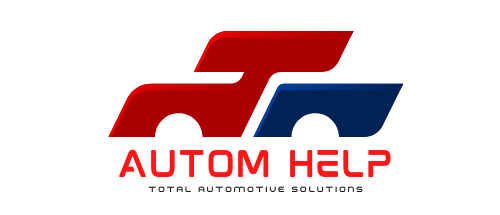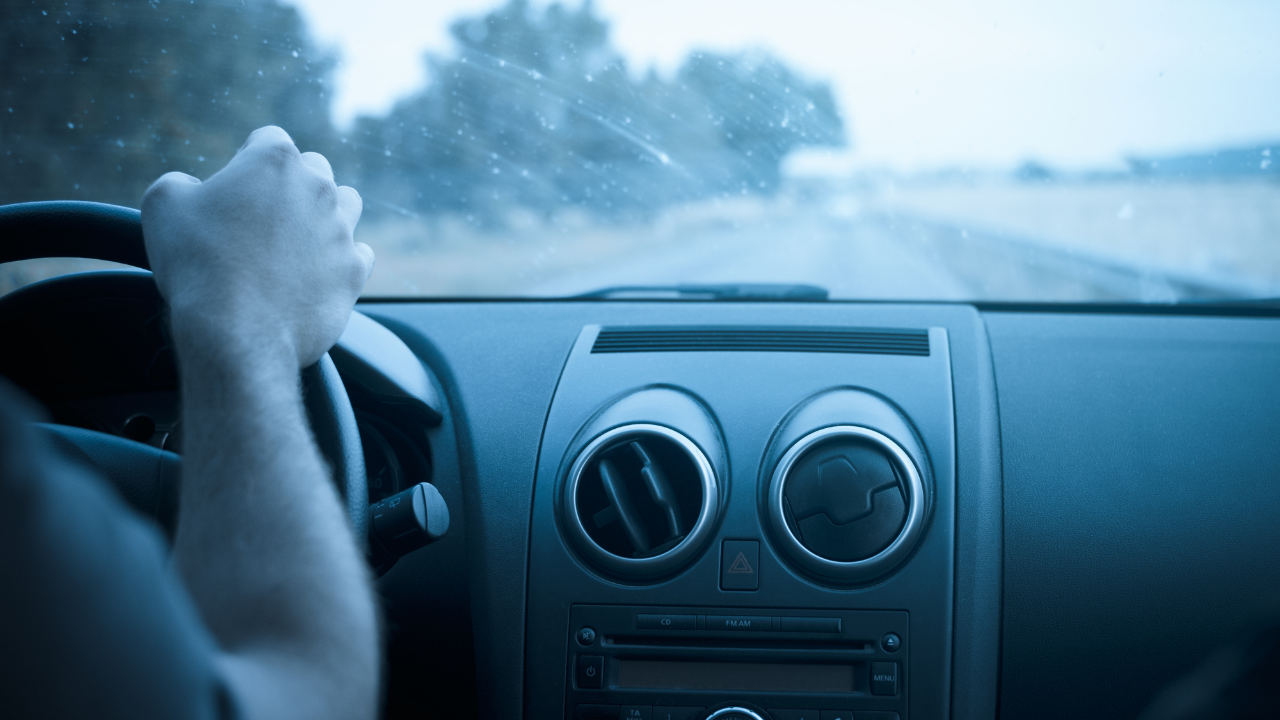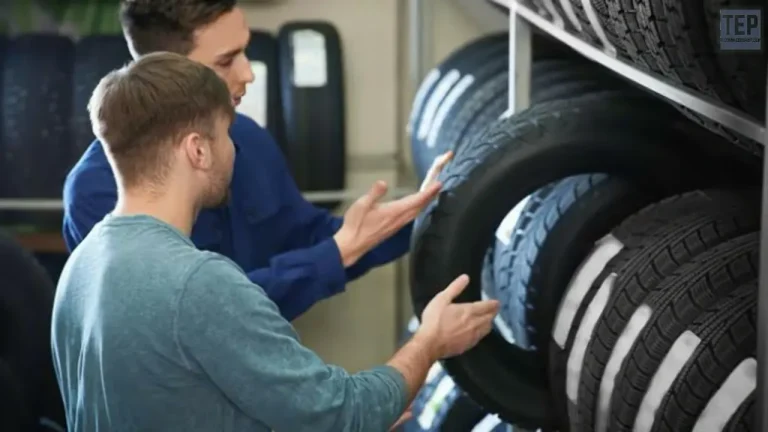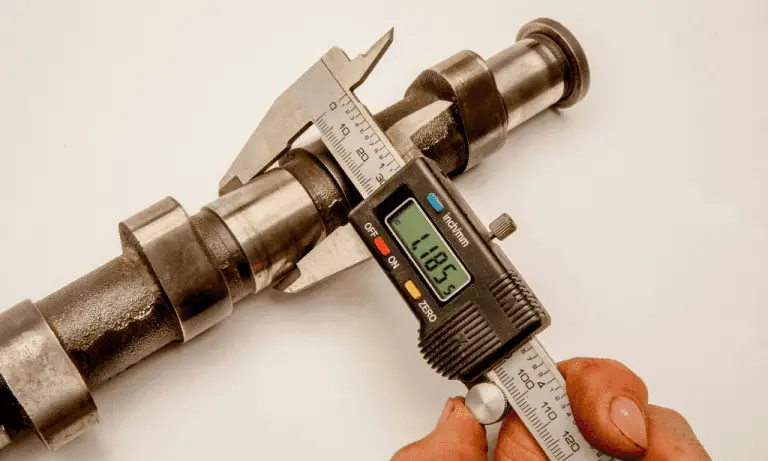Troubleshooting Dashboard Noises (Full Guide 2024)
A clicking or knocking noise in the dashboard is often caused by a loose or damaged component. This noise can be attributed to problems with the heating and cooling system, a faulty fan, or loose wiring.
When you hear a clicking or knocking noise coming from your dashboard, it is important to have it inspected by a professional mechanic. Ignoring the noise can lead to further damage and potentially costly repairs. By addressing the issue promptly, you can ensure the safety and functionality of your vehicle.
So, if you notice any unusual noises in your dashboard, it is best to have it checked out as soon as possible.
Understanding Dashboard Noises
Dashboard noises can be frustrating and concerning for any car owner. Whether it’s a clicking or knocking sound, these noises can indicate potential issues with your vehicle. Understanding the different types of noises, the importance of identifying their source, and the dashboards that are commonly affected can help you address the problem promptly.
Common Types Of Noises
When it comes to dashboard noises, there are several common types that you may encounter. Here are some of the most frequently reported noises:
- Clicking sound: A clicking noise can often be heard near the dashboard, typically when you start your car or when the air conditioning system is turned on. It can indicate issues with the relay switch, hvac actuators, or even the blend door.
- Knocking sound: If you hear a knocking noise coming from the dashboard, it could be a sign of a loose or damaged component, such as a loose screw or a faulty ventilation fan.
Importance Of Identifying The Source
Identifying the source of dashboard noises is crucial for several reasons. Understanding where the noise is coming from can help:
- Prevent further damage: By pinpointing the source of the noise, you can address the issue promptly and prevent it from escalating into a more significant problem that could potentially damage other components of your vehicle.
- Ensure your safety: Certain dashboard noises may indicate underlying mechanical problems that can compromise your safety on the road. Identifying and resolving these issues promptly can help keep you and your passengers safe.
- Avoid costly repairs: Timely identification of dashboard noise sources can save you money in the long run. Addressing minor issues early on can prevent them from developing into major and expensive repairs.
Dashboards Affected By Noises
While dashboard noises can occur in any vehicle, certain makes and models are more susceptible than others. Here are some examples of dashboards commonly affected by noises:
- Honda civic: Some honda civic models have experienced issues with dashboard clicking sounds, often associated with problems in the hvac system.
- Toyota camry: The toyota camry has had reports of dashboard knocking noises caused by loose components, such as screws or brackets.
- Ford f-150: In certain ford f-150 trucks, a clicking noise from the dashboard can indicate problems with the blend door actuator.
Remember that these are just a few examples, and dashboard noises can occur in any car. If you experience unusual sounds, it’s essential to consult your vehicle’s manual or seek professional assistance to address the issue promptly.
Understanding dashboard noises, their common types, the importance of identifying their source, and the dashboards commonly affected can equip you with valuable knowledge when faced with such a situation. By taking the necessary steps to address dashboard noises promptly, you can ensure a smooth and safe driving experience.
Clicking Sounds: What They Indicate And How To Fix Them
Experiencing a clicking noise in your car’s dashboard can be both annoying and worrisome. Not only can it be a distraction while driving, but it may also indicate an underlying issue that needs to be addressed. In this section, we will explore the main causes of clicking sounds, how to identify their source, and steps you can take to fix them.
Causes Of Clicking Sounds
When it comes to the dashboard, there are several potential culprits behind those clicks. Here are some common causes to consider:
- Worn-out hvac actuator: The hvac system in your car controls air circulation and temperature. Over time, the actuator responsible for moving the various flaps inside the system may wear out, resulting in a clicking sound.
- Damaged blend door: The blend door regulates the flow of hot and cold air in your car’s hvac system. If the blend door gets stuck or breaks, it can create a clicking noise.
- Faulty relay switch: Relays are responsible for controlling various electrical components in your car. If a relay starts to malfunction, it can cause a clicking sound as it repeatedly attempts to engage.
- Loose connections: Over time, the wires and connectors behind your dashboard can become loose or corroded. These loose connections can cause electrical issues and produce clicking sounds.
Identifying The Source Of The Noise
Pinpointing the exact source of a clicking noise in your dashboard can be challenging. However, with a bit of patience and observation, you can narrow down the possibilities. Here’s how:
- Listen for clicking patterns: Pay attention to when the clicking noise occurs. Does it happen when you start the car, change the temperature settings, or turn on specific features? Identifying a pattern can help you determine the source.
- Check the hvac system: Start by inspecting the hvac system. Adjust the temperature and fan speed while listening for changes in the clicking noise. If the sound is more pronounced during these adjustments, the issue likely lies within the hvac system.
- Inspect electrical connections: Carefully examine the wires and connectors behind the dashboard. Look for any signs of damage or looseness. Gently wiggle the connectors to see if the clicking noise intensifies or stops momentarily.
Steps To Fix Clicking Sounds
Once you have identified the source of the clicking noise, there are several steps you can take to resolve the issue:
- Replace the hvac actuator: If the clicking noise is coming from the hvac actuator, you may need to replace it. Consult your car’s manual or seek professional assistance to ensure a proper replacement.
- Repair or replace the blend door: In the case of a damaged blend door, repairing or replacing it may be necessary. This repair can be intricate, so it is recommended to consult a mechanic or specialist.
- Replace faulty relay switches: Faulty relay switches can often be easily replaced. Identify the specific relay causing the clicking noise and purchase a replacement from your local auto parts store. Follow the manufacturer’s instructions or seek professional help if needed.
- Tighten loose connections: If the clicking noise is due to loose connections, carefully tighten them. Ensure that you have the knowledge and tools required for the job, or consider seeking professional assistance.
Remember, if you are uncertain about identifying or fixing the issue causing the clicking noise, it is always best to consult a qualified mechanic or technician. Timely action can help prevent further damage and ensure a safe and enjoyable driving experience.
Knocking Sounds: What They Indicate And How To Fix Them
If you’ve ever experienced a knocking sound coming from your car’s dashboard, you know how annoying and unsettling it can be. Not only does it disrupt the peace inside your vehicle, but it can also indicate an underlying issue that needs to be addressed.
In this section, we will explore the causes of knocking sounds in your car’s dashboard, how to identify the source of the noise, and steps to fix the problem.
Causes Of Knocking Sounds
- Loose or damaged dashboard components: Over time, the various components in your car’s dashboard can become loose or damaged, causing them to rattle and produce knocking sounds. This could be due to wear and tear, improper installation, or even excessive vibrations.
- Hvac system issues: The heating, ventilation, and air conditioning (hvac) system in your car’s dashboard can also be a culprit for knocking sounds. Blower motors, actuators, or ductwork problems can lead to noises that seem to be coming from the dashboard area.
- Electrical malfunctions: Faulty wiring or electrical components in your car can result in knocking sounds. Loose connections or short circuits can cause the dashboard to emit strange noises, often resembling a knocking sound.
Identifying The Source Of The Noise
- Listen closely: Pay attention to the location of the knocking sound to help narrow down the source. Is it coming specifically from the dashboard area or possibly from the engine bay? This can give you valuable clues to identify the underlying problem.
- Check dashboard components: Inspect the various components in your car’s dashboard for any signs of damage or looseness. Look for loose screws, broken clips, or any visible wear and tear that could be causing the knocking sound.
- Observe the hvac system: If you suspect the hvac system to be the cause, experiment with different temperature settings or fan speeds to see if the noise changes. Additionally, try adjusting the air vents to see if it has any effect on the knocking sound.
- Examine electrical connections: In case you suspect electrical malfunctions, inspect the wiring and connections in your car’s electrical system. Look for loose or frayed wires, and make sure all connections are secure.
Steps To Fix Knocking Sounds
- Tighten or replace loose components: If you find any loose or damaged dashboard components, tighten them using the appropriate tools. In some cases, replacement may be necessary if the components are beyond repair.
- Seek professional help: If you’re unable to identify or fix the source of the knocking sound on your own, it’s best to consult a trained mechanic. They will have the expertise and necessary tools to diagnose and fix the problem effectively.
- Fix hvac system issues: If the hvac system is causing the knocking sound, it’s recommended to have it inspected and repaired by a professional. They can identify the specific problem, whether it’s a faulty blower motor, actuator, or ductwork, and provide the appropriate solution.
- Repair electrical malfunctions: If you suspect electrical issues, it’s crucial to have them addressed by an experienced technician or electrician. They can diagnose the problem, fix any faulty connections, and ensure the electrical system is functioning properly.
A clicking or knocking sound in your car’s dashboard should not be ignored. By understanding the potential causes, identifying the source of the noise, and following the necessary steps to fix the problem, you can ensure a quieter and more enjoyable driving experience.
Troubleshooting Dashboard Noises: Diy Solutions
Nobody wants to hear strange noises coming from their dashboard while driving. Not only can it be annoying, but it could also indicate a potential problem that needs to be addressed. In this section, we will discuss some diy solutions for troubleshooting dashboard noises to help you identify the cause and resolve the issue.
Dashboard Noise Prevention Tips
Here are a few preventive measures you can take to minimize the chances of experiencing dashboard noises:
- Keep your dashboard clean and free from clutter: Loose objects or debris can rattle and cause unwanted noise. Regularly remove any unnecessary items from your dashboard to prevent this.
- Secure dashboard components: Over time, some dashboard components may become loose due to vibrations. Ensure that all fasteners, screws, and clips are properly tightened to prevent them from rattling or causing a clicking noise.
- Check for moisture and condensation: Water leaks can lead to electrical malfunctions or corrosion, resulting in strange noises. Regularly inspect your dashboard for any signs of moisture or condensation and address the issue promptly.
Step-By-Step Guide To Troubleshooting Dashboard Noises
If you’re hearing clicking or knocking noises from your dashboard, follow these steps to diagnose and troubleshoot the problem:
- Identify the source of the noise: Pay close attention to when the noise occurs and try to determine its origin. Is it coming from the instrument cluster, air vents, or somewhere else? Pinpointing the source will help you narrow down the possible causes.
- Inspect loose or worn-out parts: Check for any loose or damaged components within the dashboard. This may include loose trim pieces, faulty knobs, or worn-out controls. Gently push or wiggle these parts to see if they contribute to the noise.
- Examine the hvac system: The heating, ventilation, and air conditioning (hvac) system can sometimes be the culprit behind dashboard noises. Inspect the system for any loose or damaged components, such as a malfunctioning blower motor or loose duct connections.
- Check the electrical connections: Loose or frayed wiring can cause clicking sounds or electrical issues. Inspect the wiring harnesses and connectors within the dashboard for any signs of damage or disconnection.
Essential Tools For Fixing Dashboard Noises
When troubleshooting and fixing dashboard noises, having the right tools can make the task much easier. Here are some essential tools you may need:
- Screwdrivers (varying sizes)
- Pliers
- Trim removal tools
- Multimeter (for electrical testing)
- Lubricants (to address squeaks and creaks)
Remember, if you’re unsure about any part of the troubleshooting process or lack the necessary tools, it’s always best to consult a professional mechanic or the vehicle manufacturer for assistance.
By following these troubleshooting tips and steps, you can tackle dashboard noises on your own and potentially save yourself a trip to the repair shop. Don’t let those annoying clicks and knocks distract you from enjoying a peaceful and quiet drive.
Seeking Professional Help: When To Consult A Mechanic
Dashboard noises can be a cause for concern, as they can indicate underlying issues with your vehicle. While some noises may be relatively harmless, others may require the attention of a professional mechanic. Knowing when to consult a mechanic for clicking or knocking noises in your dashboard is crucial for maintaining the overall health and functionality of your vehicle.
Indications For Seeking Professional Assistance
Here are some key indications that should prompt you to seek professional help for dashboard noises:
- Continuous or persistent noises: If you hear clicking or knocking noises that occur consistently while driving or even when the vehicle is idle, it’s best to consult a mechanic. Continuous noises can be a sign of a serious problem that needs to be addressed promptly.
- Intensity of the noise: Pay attention to the intensity of the clicking or knocking sound. If it is particularly loud or becomes louder over time, it is recommended to have it examined by a professional. Ignoring such noises may lead to further damage and expensive repairs down the line.
- Safety concerns: Any strange noise coming from your dashboard should not be ignored, especially if it affects the safety of your vehicle. For example, if the clicking or knocking noise is accompanied by issues such as a loss of power steering, unresponsive brakes, or an illuminated warning light, it is essential to consult a mechanic immediately to avoid any potential accidents or breakdowns.
Importance Of Addressing Dashboard Noises Promptly
Addressing dashboard noises promptly is essential to prevent further damage and potential safety hazards. Here’s why it is crucial:
- Preventive maintenance: Timely diagnosis and repair of dashboard noises can help prevent other components from being affected. Fixing the issue early on can save you from more extensive and expensive repairs in the future.
- Ensuring safety: Identifying and rectifying the cause of the noise promptly can prevent any potential safety risks. Dashboard noises may indicate problems with critical components such as the steering system or braking system, so it’s crucial to address them promptly to keep yourself and others safe on the road.
- Peace of mind: Dashboard noises can be stressful and anxiety-inducing. Getting the issue resolved by a professional mechanic will provide you with peace of mind, knowing that your vehicle is in optimal working condition.
Factors To Consider When Choosing A Mechanic
When it comes to choosing a mechanic for your dashboard noise issues, consider the following factors:
- Qualifications and experience: Look for a mechanic with the necessary qualifications and experience in handling dashboard-related problems. Make sure they are skilled in diagnosing and repairing issues specific to your vehicle make and model.
- Reviews and recommendations: Check online reviews and ask for recommendations from friends, family, or trusted sources. Positive reviews and recommendations can give you confidence in the mechanic’s expertise and reliability.
- Certifications and affiliations: Look for mechanics who are certified by reputable automotive associations or have affiliations with recognized industry organizations. These certifications and affiliations can be indicators of their commitment to quality service.
- Pricing and warranty: Inquire about pricing structures and whether the mechanic offers any warranties on their services. It’s essential to understand the cost implications and ensure transparency before proceeding with any repairs.
- Communication and customer service: Choose a mechanic who communicates effectively and provides excellent customer service. A mechanic who takes the time to explain the issue and the necessary repairs can build trust and make you feel more comfortable with their services.
Remember, addressing dashboard noises promptly and relying on the expertise of a professional mechanic will help ensure the longevity and reliability of your vehicle. Don’t hesitate to seek professional help if you are experiencing concerning clicking or knocking noises in your dashboard.
Dashboard Noise Maintenance: Preventative Measures
Maintaining a quiet and smooth-running dashboard is crucial for a comfortable driving experience. By taking proactive measures and conducting regular maintenance, you can prevent the occurrence of clicking or knocking noises in your dashboard. Here are some key points to consider:
- Regular maintenance to prevent future noises:
- Schedule regular inspections by a certified mechanic to identify and address any potential issues before they become major problems.
- Ensure that all dashboard components, including the steering column, heater vents, and radio, are properly lubricated and functioning smoothly.
- Regularly check and replace worn-out dashboard components, such as loose screws or broken clips, to prevent rattling noises.
- Importance of routine inspections:
- Routine inspections help detect any signs of wear and tear or loose connections in the dashboard.
- Identifying and resolving potential issues early on can save you from costly repairs down the line.
- Regular inspections ensure the overall safety and functionality of your vehicle’s dashboard.
- Tips for keeping your dashboard noise-free:
- Avoid placing heavy or loose objects on the dashboard that can lead to unnecessary vibrations and noise.
- Keep the dashboard clean and free from dust and debris that can potentially interfere with the proper functioning of components.
- Secure any loose wiring or cables behind the dashboard to prevent them from knocking against other components.
- If you notice any unusual noises coming from your dashboard, address the issue promptly to prevent further damage.
By following these preventative measures and incorporating regular maintenance into your vehicle care routine, you can minimize the chances of experiencing clicking or knocking noises in your dashboard. Stay proactive, stay noise-free!
Conclusion
Understanding the causes of clicking or knocking noises in the dashboard is crucial for maintaining the health and functionality of your vehicle. By identifying and addressing the specific issue, whether it is a loose component, a malfunctioning hvac system, or a faulty blend door actuator, you can prevent further damage and potentially expensive repairs.
Regular maintenance, such as checking and tightening loose screws or bolts, can go a long way in preventing these noises from occurring. If you are unsure about the cause of the noise, it is always best to seek professional help to diagnose and resolve the issue.
Remember, taking prompt action and addressing these sounds can help extend the lifespan of your vehicle and ensure a smooth, quiet ride. So, if you hear any clicking or knocking noises in your dashboard, don’t ignore them – investigate and resolve them to keep your car in top shape.
- Why Are My Car Headlights Not Bright Enough? - May 9, 2024
- How Long Can You Drive With An EVAP Leak? - May 9, 2024
- What Does B Stand for in a Car? [Full Guide] - May 9, 2024





![How Many Spark Plugs Do I Need? [Expert Advice]](https://automhelp.com/wp-content/uploads/2023/07/How-Many-Spark-Plugs-Do-I-Need-768x461.png)